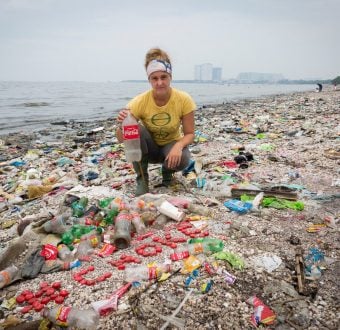Washington, D.C.-In a new Greenpeace investigation of more than
500 congressional lobbying records of the chemical industry and
allied businesses, researchers identified 238 lobbyists who
registered to block strong chemical security legislation in 2007.
With a total chemical lobbying budget of $130 million, Greenpeace
estimates that the industry spent an average of nearly $1 million a
month to forestall strong chemical security legislation.
The report documents multiple layers of an almost invisible but
ubiquitous lobbying campaign to keep large chemical users from
having to switch to safer, more secure chemicals and processes. The
report identified 20 trade associations involved in the effort,
such as the American Chemistry Council (ACC), the U.S. Chamber of
Commerce and 30 companies including Dow Chemical Company,
ExxonMobil, and high-priced law firms such as Hogan &
Hartson.
Since 9/11, the chemical industry lobby has succeeded in
delaying the enactment of permanent, comprehensive chemical
security regulations. In 2006, a temporary law was enacted with the
expectation that Congress would revisit the issue in 2007, but
chemical industry lobbyists so far have stalled the much-needed
long-term solution to the problem.
Jack Gerard, CEO of the ACC. indicated the chemical lobby’s
intent to keep stalling on the issue: “We believe the Department of
Homeland Security should have the ability to put these regs in
place. Let’s let the dust settle, and then a few years down the
road let’s take a look at it.”
In contrast, the Association of American Railroads recently
released a statement calling for improvements to the security of
the country’s ultra-hazardous chemicals: “It is time for the
nation’s big chemical companies to stop making the dangerous
chemicals that can be replaced by safer substitutes or new
technologies currently in the marketplace…And if they won’t do it,
Congress should do it for them in the Chemical Facility
Anti-Terrorism Act of 2008.”
In March, a comprehensive bill (H.R. 5577) that would replace
the temporary law currently in place moved out of the Homeland
Security Committee. If passed, it would require the highest risk
chemical plants to use safer chemicals or processes in order to
minimize the risks of catastrophic events associated with these
facilities. It now must go through the House Energy & Commerce
Committee. The committee could improve it, weaken it or slow it
down. Regardless, the 110th Congress only has about six months
remaining to enact a strong law.
“After seven years of legislative failures, it’s time for
Congress to say ‘no’ to the chemical lobby and ‘yes’ to protecting
American communities,” said Rick Hind, Greenpeace’s Legislative
Director.
VVPR info: Jane Kochersperger
Tel: 202-319-2493
Email: [email protected]

